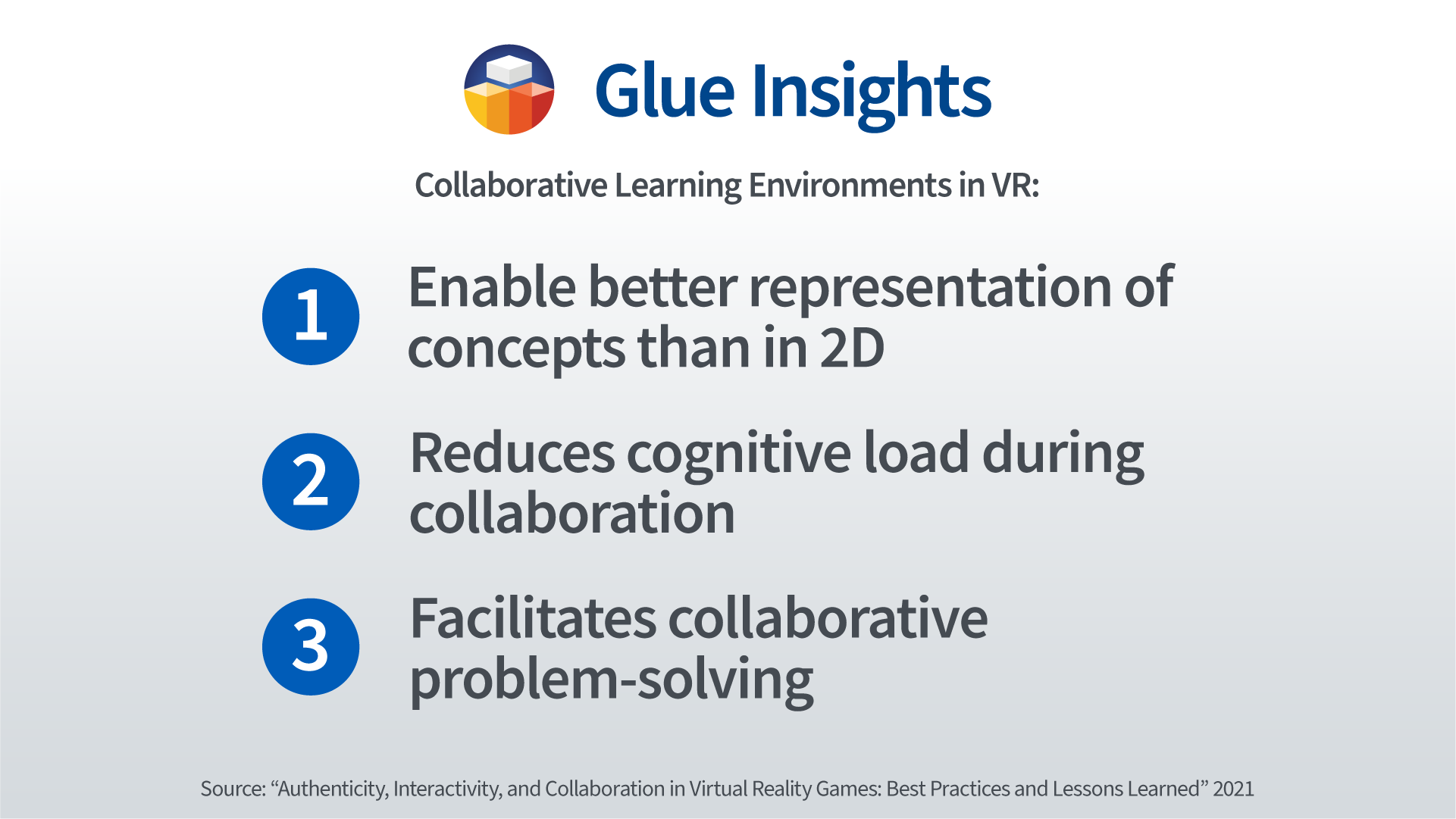The research on collaborative learning environments in virtual reality identified how VR can enhance learning outcomes:
1. Enable better representation of concepts than in 2D
Interactive experiences surpass 2D representations by offering a dynamic, hands-on exploration of concepts and active engagement provides a deeper understanding.
2. Reduce cognitive load during collaboration
In VR, an overflow of information can escalate cognitive load, yet an appropriate degree of cognitive load is crucial for effective learning. Well-designed VR experiences balance the cognitive load and enhance the learning outcomes.
3. Facilitate collaborative problem-solving
VR creates an opportunity to build a shared understanding of a situation and work together to solve problems. These are critical skills for teams in an environment that continues to become more interdisciplinary and virtual.
This research provides interesting insights into how virtual experiences impact learning, with universal applications extending to business training and learning encounters.
Learn how to kickstart immersive VR training in your workplace.
Source: “Authenticity, Interactivity, and Collaboration in Virtual Reality Games: Best Practices and Lessons Learned” 2021


